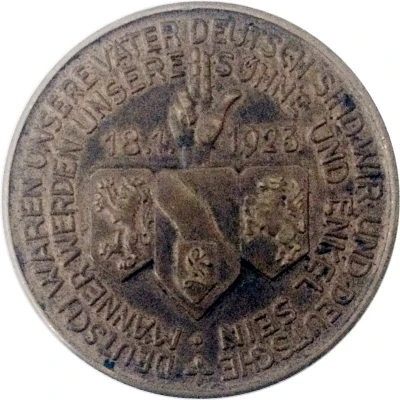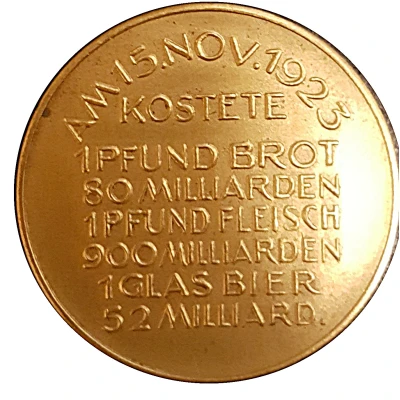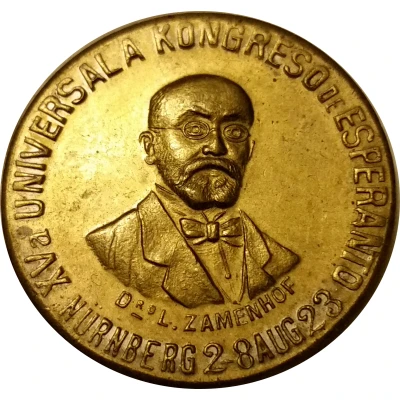


On the resistance against the occupation of the Ruhr
1923 year| Bronze | 14.5 g | 33.6 mm |
| Location | Germany (1871-1948) |
|---|---|
| Period | Weimar Republic (1918-1933) |
| Type | Medals › Commemorative medals |
| Year | 1923 |
| Composition | Bronze |
| Weight | 14.5 g |
| Diameter | 33.6 mm |
| Thickness | 2.5 mm |
| Shape | Round |
| Technique | Milled |
| Orientation | Medal alignment ↑↑ |
| Demonetized | Yes |
| Updated | 2024-11-14 |
| Numista | N#232425 |
|---|---|
| Rarity index | 97% |
Reverse
Three central shields (coats of arms), with a raised right hand (oath) above with two fingers pointing, dividing date. Two lines of lettering around
Lettering:
DEUTSCH WAREN UNSERE VÄTER DEUTSCH SIND WIR UND DEUTSCHE +
MÄNNER WERDEN UNSERE SÖHNE UND ENKEL SEIN ·
18.1.1923
Translation:
Our Fathers were German
We are German
And our sons and grandsons will be Germans
Edge
Plain
Comment
Weimar Republic - unsigned medal.
Issued on the anniversary of the founding of the Empire and the imperial proclamation at Versailles.
Some better examples:
Occupation of the Ruhr, 1923
In order to enforce the reparation claims , the International Rhineland Commission, with the votes of its President Paul Tirard (1879-1945) and the Belgian representative, issued so-called sanctions ordinances. The instructions for this came from Paris. The representative of Great Britain abstained. The USA no longer took part in the Rhineland Commission. In protest against French policy, they evacuated their zone of occupation. It was left to France.
The measures of the Rhineland Commission were directed against the entire French and Belgian occupied area. On January 18, 1923, it first ordered the confiscation of income from coal tax, import and export duties and income from state and community forests. Officials, employees and workers of the German authorities and agencies were placed under the authority of the Rhineland Commission. Violations of their orders were threatened with imprisonment of up to five years and a fine of up to 20,000 gold marks. On the same day the Reich government and the affected state governments announced their passive resistance.



